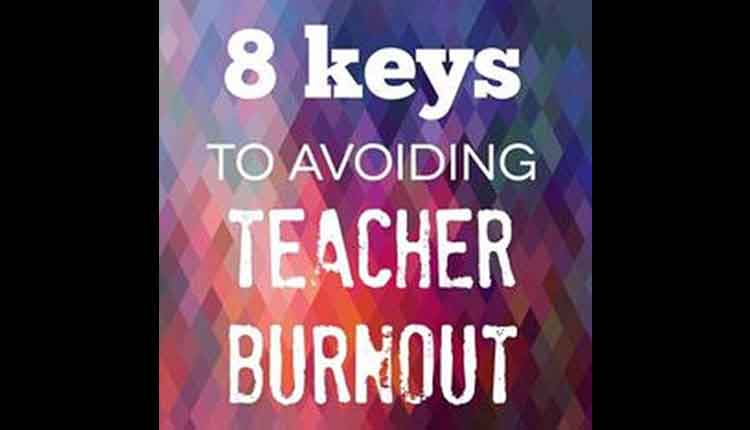Burnout is not an all-or-nothing proposition. Like fire, motivation gets stronger and burns hotter, or diminishes and burns out. There is no constant state. On any particular day, enthusiasm for work is increasing or decreasing, but it does not remain the same. Even the hottest fires will burn out, so we tend them; fanning, stoking, and occasionally adding another log. Like fires, people are not static. When motivation wanes, we burn out. There is no need for alarm as long as you still have fuel, know how to tend motivation, and haven’t waited too long.
– Beverly A. Potter
Overcoming Job Burnout: How to Renew Enthusiasm for Work
Every band director knows that music education can be a stressful business at times. Despite the rewards of making music, the frustrations of trying to manage a classroom full of pre-adolescents and/or teenagers, sticking with the budget (or surviving in spite of it), and completing other administrative tasks can wear anyone down.
But before you start reworking your resume or fill out an application for a graduate degree in computer science or engineering, you might want to consider the possible symptoms, causes, and solutions of burnout.
While the symptoms might seem obvious to anyone experiencing job burnout, try not to confuse a bad week in the band room with certain downfall.
Some of the symptoms of burnout include:
- Exhaustion
- Depression
- Headaches (and not just from the percussion section playing too loudly!)
- Stomach upset
- Sleeping dysfunction
- Apathy
- Negativism
- Increased anxiety
- Boredom
- Frustration
- Lack of emotional control
If ignored, these symptoms can have negative consequences. You may find that performances become mundane or have slipped in quality a bit. In an effort to make up for the time you have been spending rethinking your career choice, you might work extra hours. Or the band program may have become such a burden that you start coming in later and leaving earlier. But this doesn’t have to be the case.
Solutions can be basic and seemingly obvious, or they can be a bit more customized based on your situation. This takes an honest evaluation of what has gone wrong.
Some suggestions for beating burnout:
- Sleep: Have you been losing sleep lately? While this may be related to the stress you are experiencing at work, cutting sleep out of guilt won?t make the situation any better. Try to get more shuteye.
- Eat right: Diet plays an important role in overall heath, emotional and physical.
- Exercise regularly: The minimum recommended is 30 minutes, 3-5 days per week.
- Schedule some time for yourself: This may seem selfish in the beginning, but it really benefits everyone, including your students.
- Take a break: Keep one night for family and/or friends only.
- Find someone (a mentor) you can share your thoughts with: Is there another band director in the area who has more experience than you or seems to have a great program and lots of enthusiasm? If you live in a rural area, try making contacts with veteran directors through a program like the NBA’s Mentor Program.
- Decorate: Put up pictures around your office that take your mind off of work or remind you of when the marching band won first place at a regional competition. Add some plant life. Simple as it sounds, taking a five-minute holiday can make a difference!
- Do more than is required: Yes, it means a risk of disappointment if you stick your neck out and add a spirit band or a parent group and it doesn’t work out. But it just might revitalize your program and your attitude about it!
- Be realistic: Don’t hope to change the world with every student. Most days will be fairly ordinary. Yes, we all hope for those “Mr. Holland” moments, and they will come, but probably not every day.
- Delegate tasks: Appoint a student leader to set up the stands and seats before the first band period each day or assist with administrative tasks. Let parents get involved with some basic organization and fundraising. Sometimes burnout occurs because the band director tries to “do it all.”
- If needed, don’t be afraid to seek medical help.
Before you throw in the baton, take a realistic look at your program and your attitude toward it. While the solution may be easy or take time, it’s worth searching for before you pursue another career in music or something entirely new.
Sources: “Avoiding Burnout Blues” by David Dunn
(http://www.sbdc.uga.edu/pdfs/dunn04.pdf)
Overcoming Job Burnout: How to Renew Enthusiasm for Work by Beverly A. Potter


